Akbar-Birbal Stories for Kids With Moral
Famous Akbar-Birbal stories for kids for their entertaining and moral lessons. These tales depict the witty exchanges and problem-solving skills between Emperor Akbar and his clever advisor, Birbal. Through these stories, children not only enjoy the humorous situations but also learn valuable life lessons and virtues from Akbar’s intelligence and Birbal’s wisdom. These stories continue to captivate young minds while imparting timeless wisdom and moral values.
Chapter 1: The Royal Decree
The Kingdom of Akbar, a beacon of prosperity and culture, flourished under the wise and just rule of Emperor Akbar. His capital, Fatehpur Sikri, was a masterpiece of Mughal architecture, filled with majestic palaces and vibrant markets. Akbar’s court was a hub of intellect and talent, attracting scholars, artists, and poets from all over.
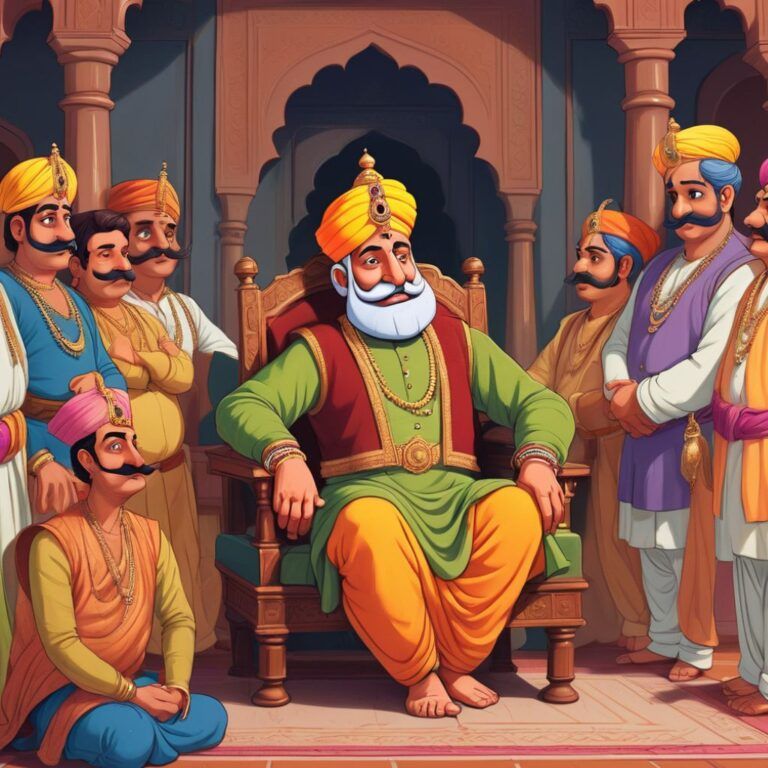
Among them, Birbal, the emperor’s trusted advisor, stood out for his unmatched intellect and wit. As the sun rose over the grand city, anticipation filled the air. The courtiers gathered, eager for Akbar’s grand announcement that promised an exciting new adventure.
Chapter 2: The Lost Ring
One fine morning, Emperor Akbar decided to take a stroll in his opulent garden, which was known for its rare flowers and serene beauty. As he walked, admiring the meticulously maintained pathways and blooming flowers, he noticed that his precious ring, a symbol of his reign, was missing from his finger. Distressed, Akbar immediately called his courtiers to search for the lost ring, but despite their diligent efforts, it remained missing.
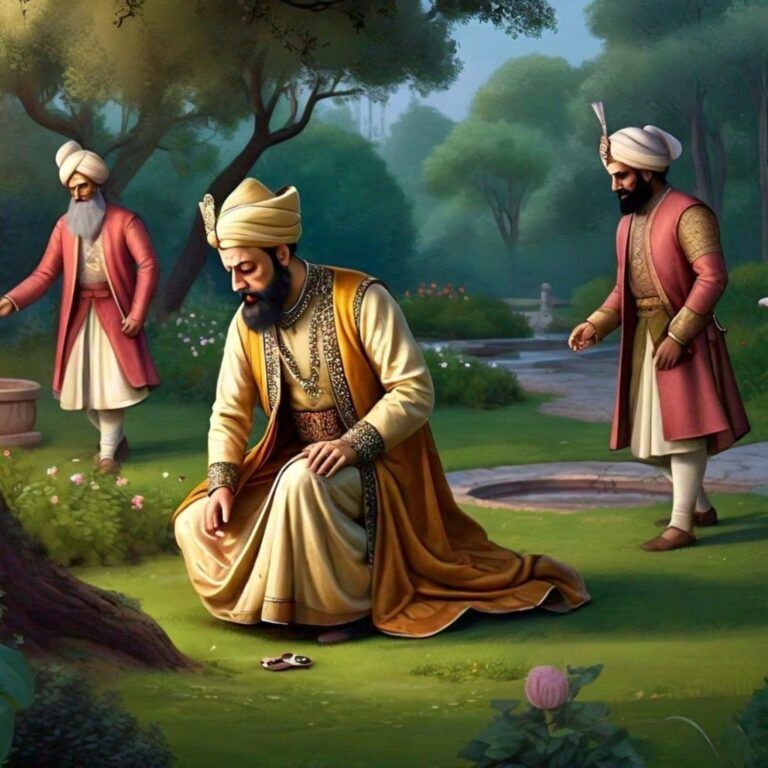
Desperate to find the ring, Akbar summoned Birbal, confident that his sharp-witted advisor would solve the mystery. Birbal, with his usual calm demeanor, asked the emperor for some time to gather all the workers who had been in the garden that day. Once they were assembled, Birbal carefully observed each person, noting their reactions and body language.
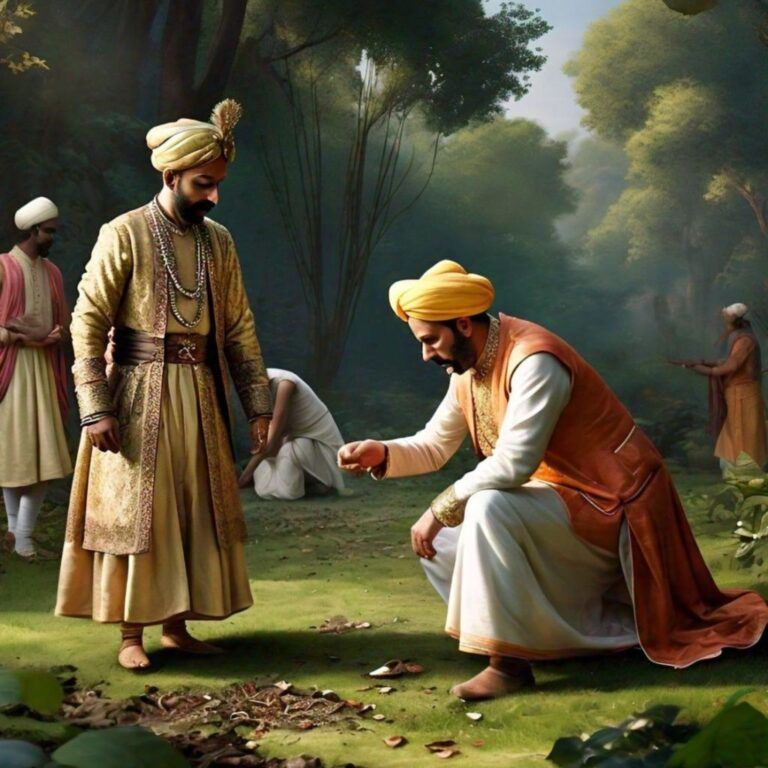
He then made a bold announcement: “The ring is with one of you. The person who has it will exhibit certain signs of guilt, which I will reveal shortly.” As Birbal described the peculiar behavior, the guilty worker, unable to hide his anxiety, began to show those exact signs. Overwhelmed by his conscience, the worker confessed to taking the ring and returned it to Akbar.
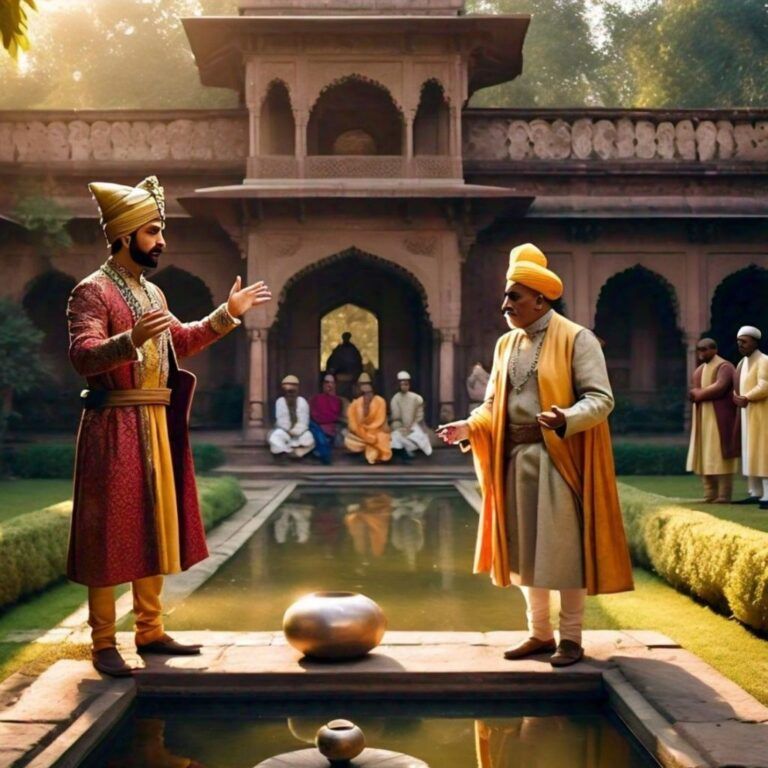
Emperor Akbar was once again astounded by Birbal’s keen observation and psychological insight. He praised Birbal, not just for recovering the ring, but for teaching the court an invaluable lesson about human behavior and honesty.
Chapter 3: The Clever Farmer
One day, Emperor Akbar decided to test Birbal’s claim that wisdom and strength do not always come from noble birth or high positions. He asked Birbal to bring the strongest and most intelligent man in the kingdom to his court. Birbal accepted the challenge and set out to find such a person.
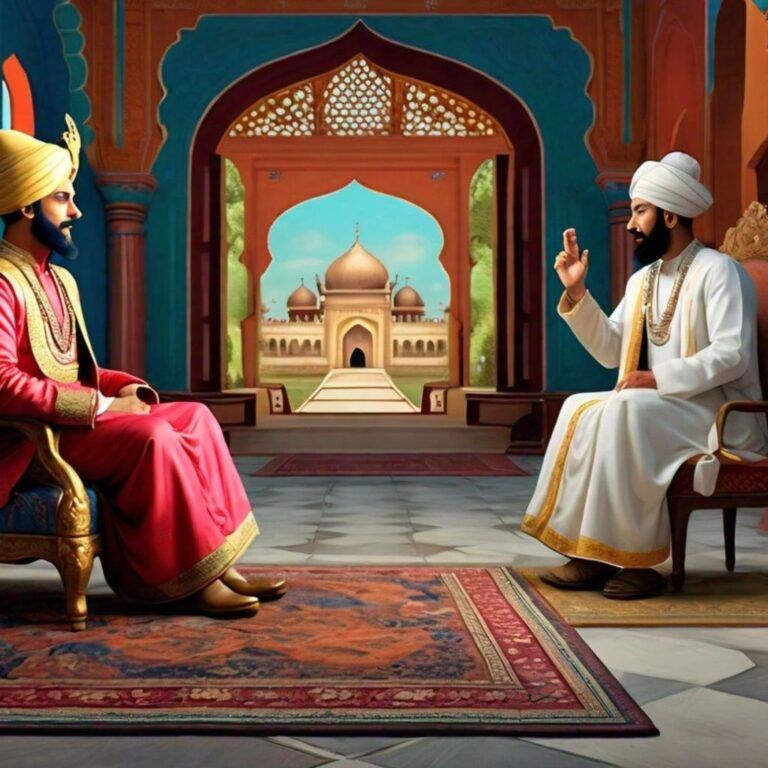
After traveling through various villages and observing many people, Birbal arrived at a small village and met a humble farmer named Ramu. Impressed by Ramu’s practical wisdom and physical endurance, Birbal invited him to the royal court. Skeptical of Birbal’s choice, Akbar questioned the farmer, asking him various difficult questions about life, agriculture, and human nature.
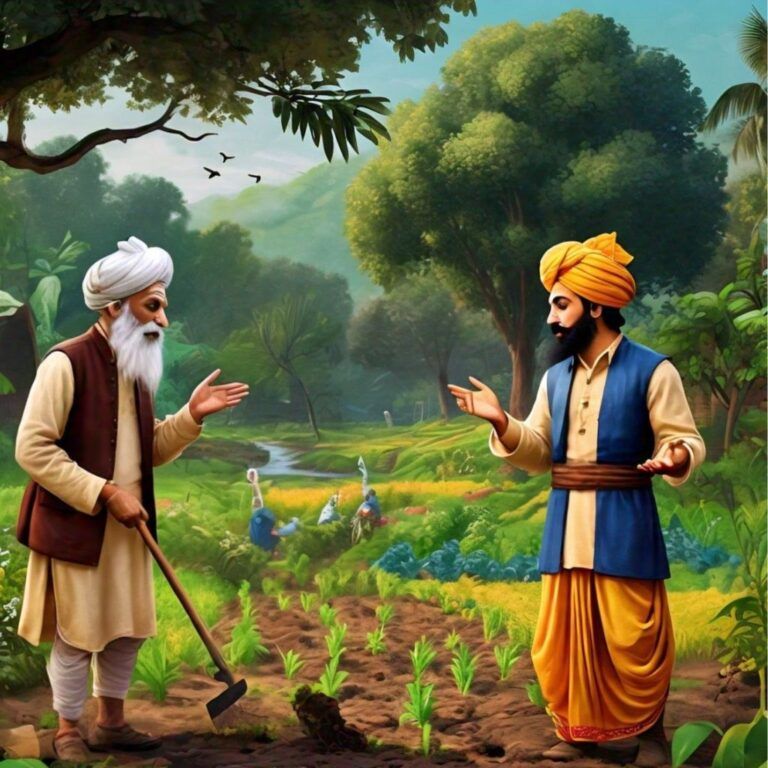
To everyone’s surprise, Ramu’s answers were not only insightful but also filled with profound simplicity and truth. He explained complex concepts with such clarity that Akbar and his courtiers were left in awe. Birbal then explained, “Your Majesty, true strength and intelligence often lie in the simplicity of a farmer who toils the land and understands nature’s rhythms.
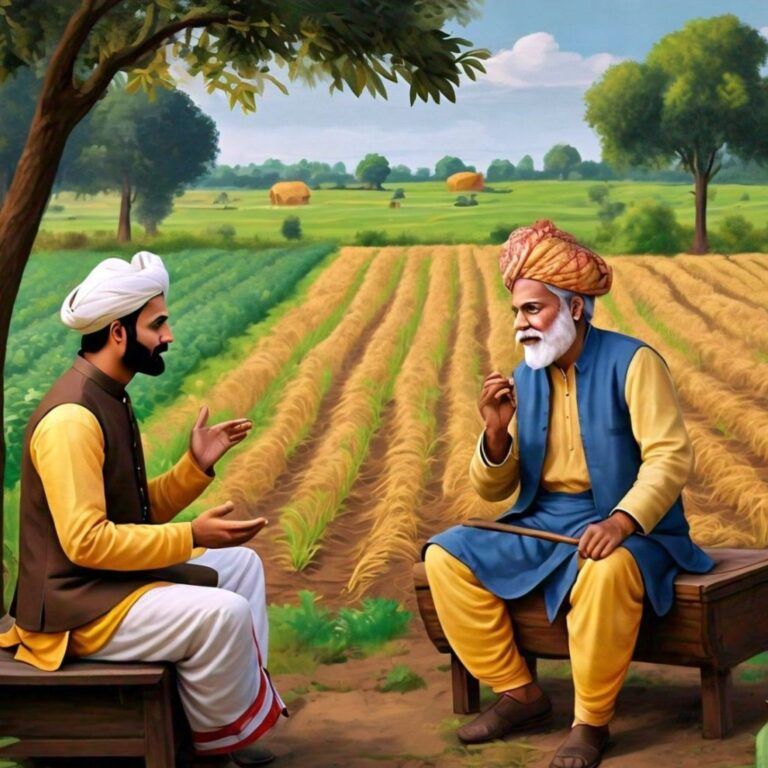
Ramu’s wisdom comes from his experience and his strength from his hard work, proving that true greatness can come from the humblest of origins.” Emperor Akbar, enlightened by this lesson, thanked Ramu and rewarded him generously. He also acknowledged Birbal’s unerring ability to recognize true wisdom and strength, regardless of one’s social status.

Chapter 4: The Pot of Wisdom
Emperor Akbar, always eager to challenge his courtiers, placed an empty pot in the center of the court one day. He then asked each courtier to fill the pot with what they believed to be the essence of wisdom. Many courtiers came forward, writing down lengthy philosophies, quotes from ancient texts, and personal reflections, which they placed in the pot.

When it was Birbal’s turn, he approached the pot with a small mirror in his hand. Without saying a word, he placed the mirror inside the pot and stepped back. The courtiers murmured among themselves, puzzled by Birbal’s simple contribution. Akbar, intrigued by Birbal’s action, asked for an explanation.
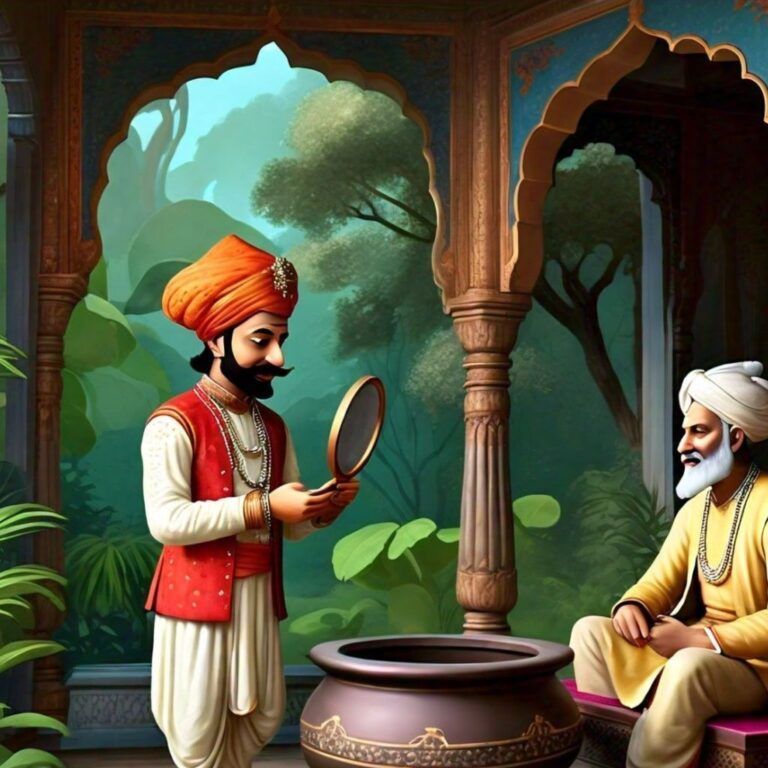
Birbal, with a gentle smile, replied, “Your Majesty, true wisdom comes from self-reflection. The mirror symbolizes the need to look within ourselves to understand our true nature and the world around us. It is through self-awareness that we gain genuine wisdom.” Akbar was deeply moved by Birbal’s profound yet straightforward gesture. He declared Birbal’s contribution the most valuable and insightful, praising him for reminding the court that wisdom often lies in introspection and self-discovery.
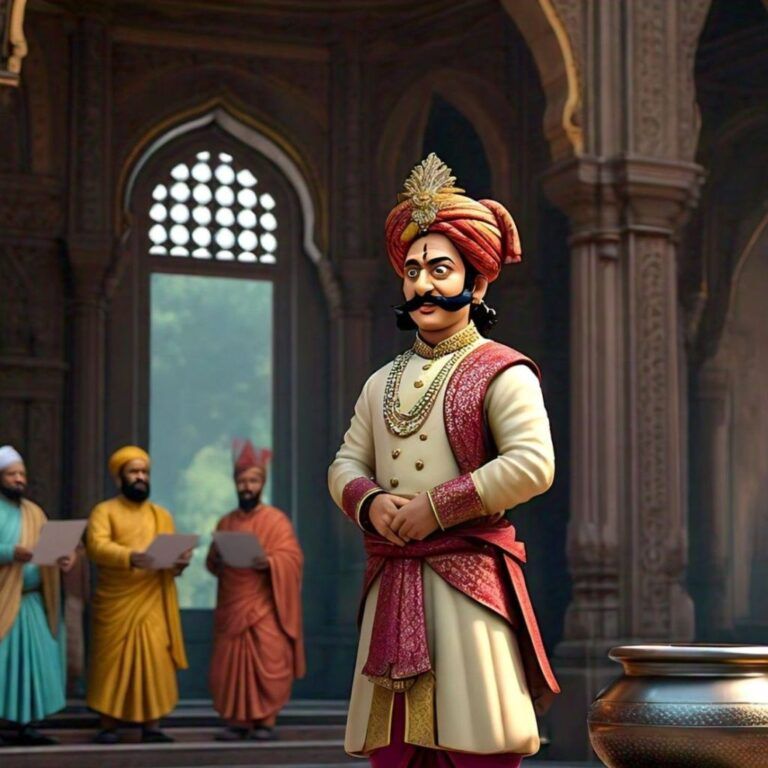
Chapter 5: The Case of the Disappearing Donkey
One morning, a distressed man approached Emperor Akbar during his public audience. The man, a poor villager, claimed that his only donkey had been stolen, leaving him without the means to earn a living. Despite his efforts to search for it, he had been unable to find his beloved animal.

Moved by the man’s plight, Akbar promised to help and immediately summoned Birbal. Birbal, understanding the urgency of the situation, decided to take swift action. He gathered all the men in the village and instructed them to gather in the main square. Addressing the crowd, Birbal said, “I have a magical method to identify the thief. Each of you must place your hand inside the empty stable where the donkey was kept.

Birbal, after contemplating the problem, took a longer stick and placed it next to the others. By comparison, the other sticks now appeared shorter. Akbar laughed heartily, realizing that Birbal had used a simple yet effective method to solve the problem.

Chapter 6: The Magic Stick
Akbar, intrigued by Birbal’s wisdom, decided to test it with a new challenge. He gathered several sticks of varying lengths and asked Birbal to identify the shortest stick among them without cutting or altering any of the sticks.
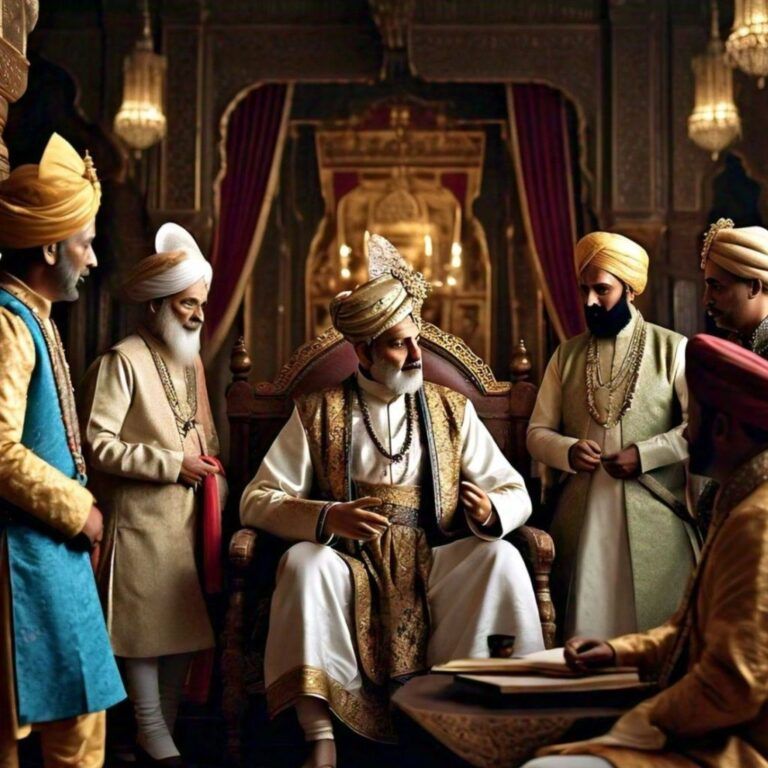
Birbal, after contemplating the problem, took a longer stick and placed it next to the others. By comparison, the other sticks now appeared shorter. Akbar laughed heartily, realizing that Birbal had used a simple yet effective method to solve the problem.
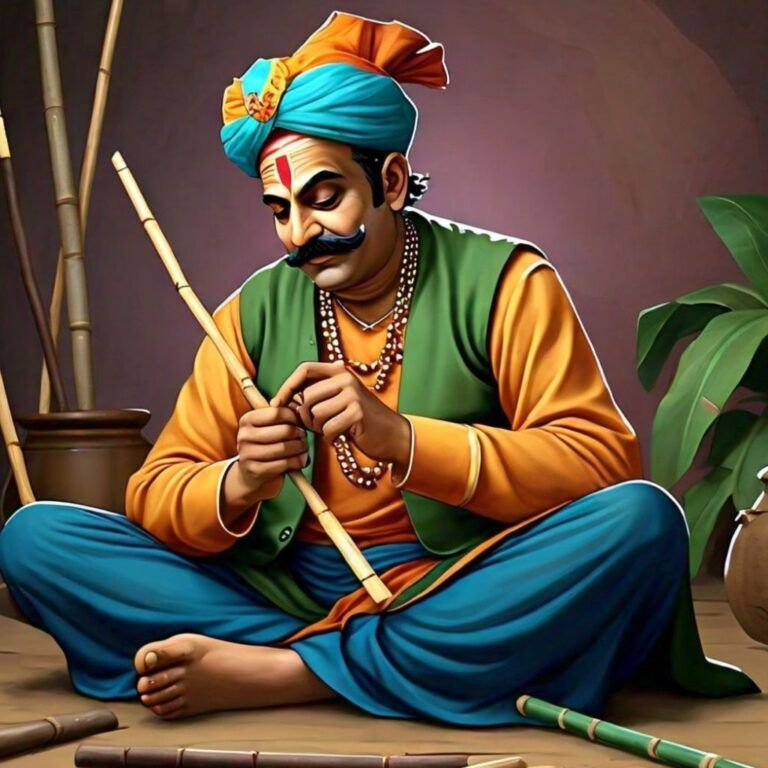
Birbal explained, “Your Majesty, sometimes the solution lies in changing our perspective rather than altering the problem itself. By providing a new reference point, we can see things more clearly.” Akbar, impressed by Birbal’s ingenuity, appreciated the lesson about the importance of perspective and creative thinking.
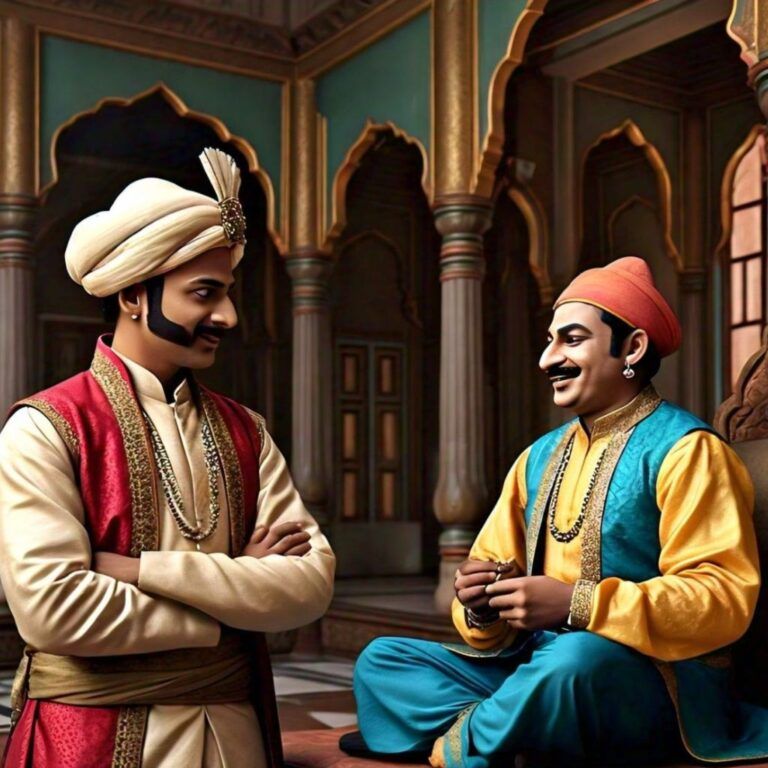
Also View:- 8 Best Tenali Rama Stories in English with Moral
Chapter 7: The Unique Test of Loyalty
Emperor Akbar once expressed doubt about the loyalty of his courtiers. Birbal decided to test them in a unique way. He announced that Akbar had ordered a massive pit to be dug and asked each courtier to jump into it to prove their loyalty.
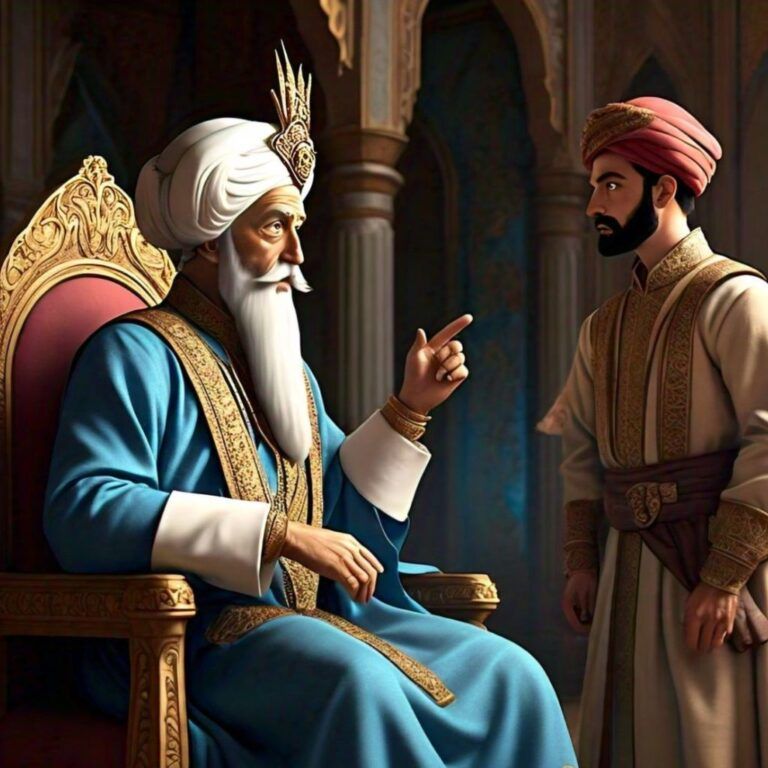
The courtiers, shocked by the bizarre request, hesitated. However, one by one, they stepped forward reluctantly. When Birbal’s turn came, he approached the pit, looked back at Akbar, and said, “Your Majesty, loyalty lies not in blind obedience but in understanding the reason behind an order. Why should I jump into this pit if there is no purpose?”
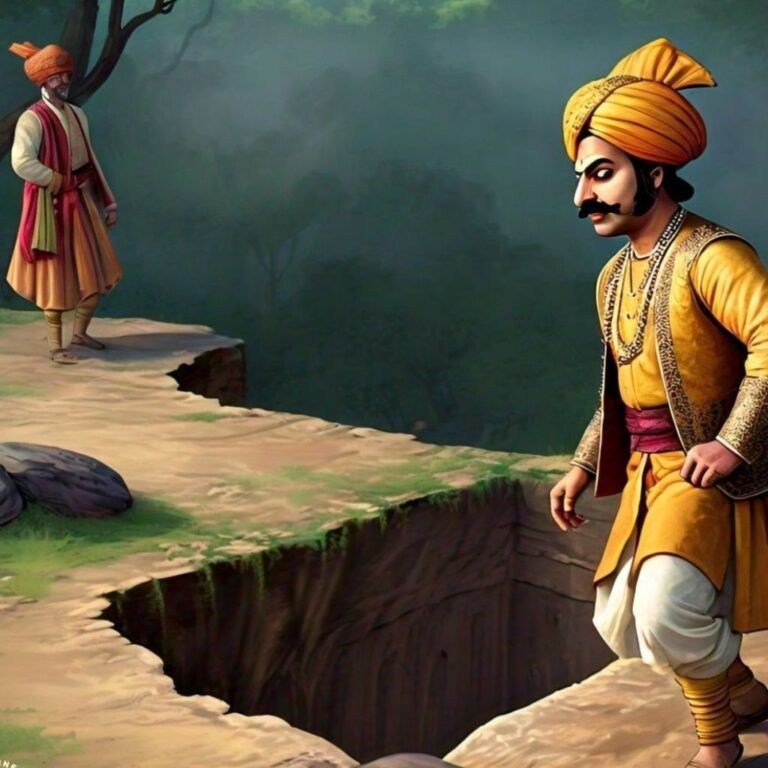
Akbar, smiling, praised Birbal for his wisdom and understanding. He realized that true loyalty includes questioning unreasonable commands, proving that Birbal’s loyalty was indeed the greatest of all.

Chapter 8: The Test of True Justice
Two women came to Akbar’s court, each claiming to be the mother of a baby. Unable to determine the truth, Akbar asked Birbal for a solution. Birbal, with a solemn expression, suggested cutting the baby in half and giving each woman a part.
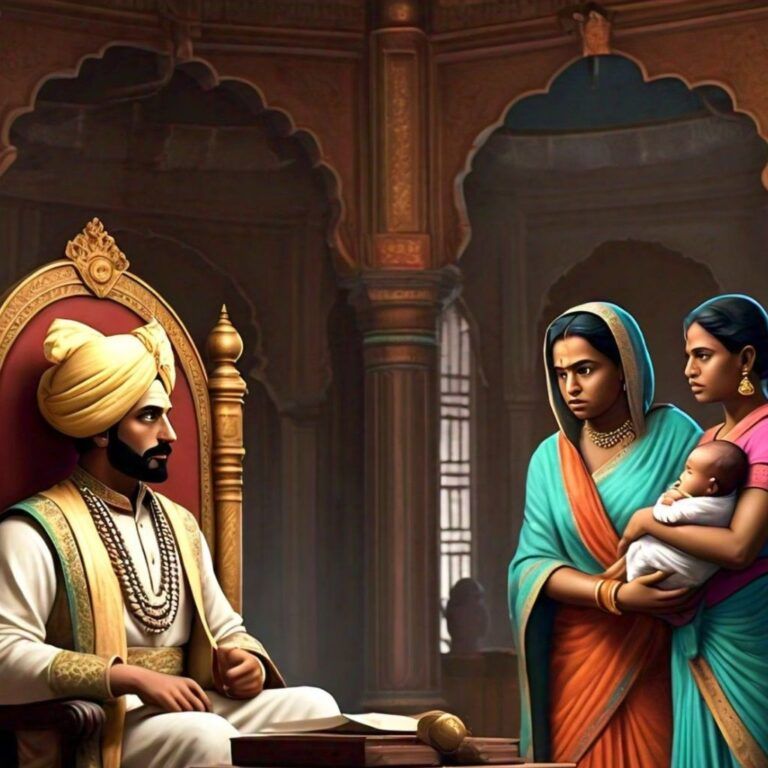
One woman immediately agreed, while the other cried out, “No, let her have the baby, but please don’t harm the child!” Birbal smiled and pointed to the second woman, “This is the true mother. A real mother would never let her child be harmed.”
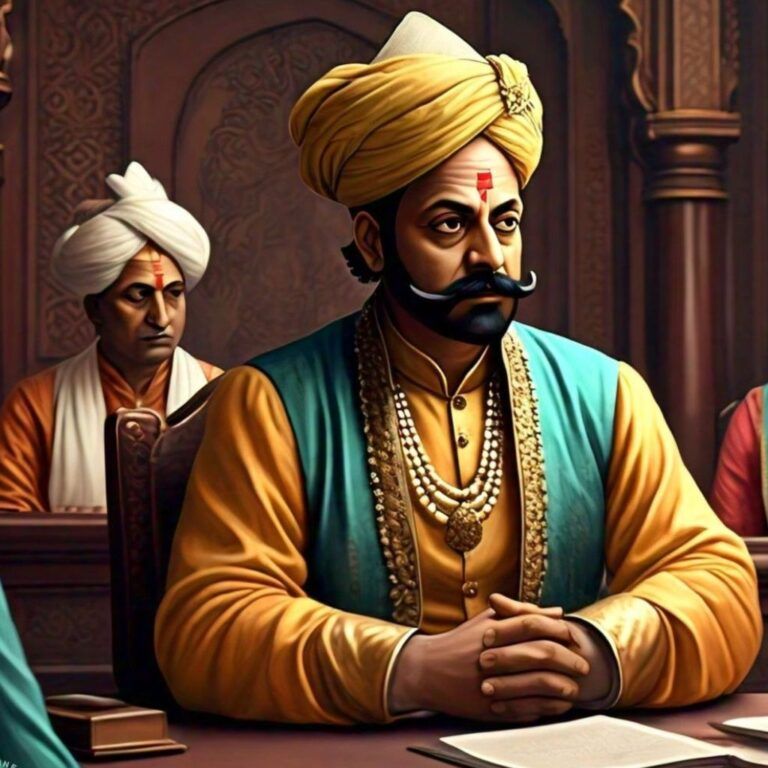
Akbar, once again amazed by Birbal’s wisdom, awarded the baby to the rightful mother.
FAQ's
Frequently Asked Questions
Was Birbal older than Akbar?
Yes, Birbal was older than Akbar. Birbal, whose full name was Mahesh Das, was born around 1528, whereas Akbar the Great, the Mughal Emperor, was born in 1542. Therefore, Birbal was about 14 years older than Akbar.
Did Birbal meet Tenali Rama?
In short, Birbal and Tenali Rama are legendary figures known for their wit and intelligence, but there is no historical evidence that they ever met. They served different rulers (Akbar and Krishnadevaraya) in different time periods and regions of India. Their stories and anecdotes have been popularized separately in Indian folklore and literature.
Which is the best story of Akbar and Birbal?
One of the most famous and cherished stories about Akbar and Birbal is “The Mango Tree Test.” In this tale, Birbal cleverly solves Akbar’s challenge of making a mango tree bear fruit out of season by placing ripe mangoes on a barren tree, impressing Akbar with his ingenuity and wit. This story highlights Birbal’s ability to think creatively and solve problems effectively, earning him the admiration and respect of Emperor Akbar.
